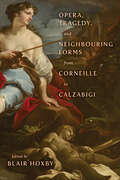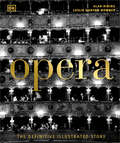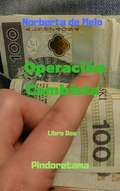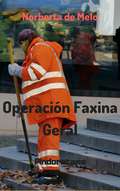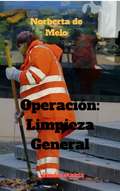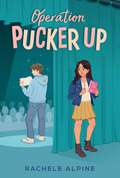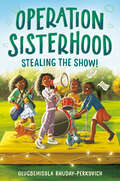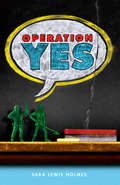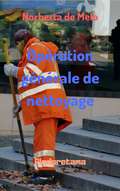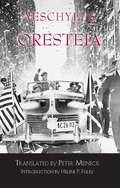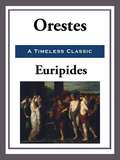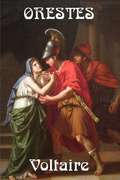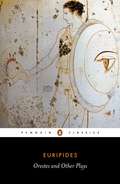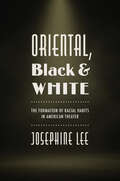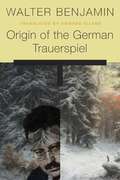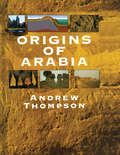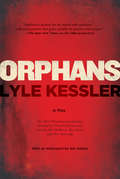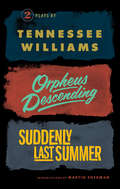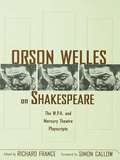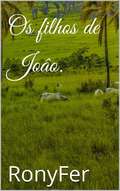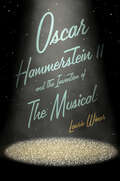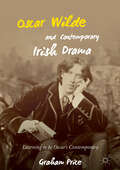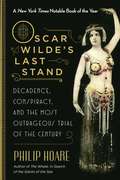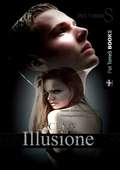- Table View
- List View
Opera, Tragedy, and Neighbouring Forms from Corneille to Calzabigi
by Blair HoxbySince the nineteenth century, some of the most influential historians have portrayed opera and tragedy as wholly distinct cultural phenomena. These historians have denied a meaningful connection between the tragedy of the ancients and the efforts of early modern composers to arrive at styles that were intensely dramatic. Drawing on a series of case studies, Opera, Tragedy, and Neighbouring Forms from Corneille to Calzabigi traces the productive, if at times rivalrous, relationship between opera and tragedy from the institution of French regular tragedy under Richelieu in the 1630s to the reform of opera championed by Calzabigi and Gluck in the late eighteenth century. Blair Hoxby and his fellow contributors shed light on “neighbouring forms” of theatre, including pastoral drama, tragédie en machines, tragédie en musique, and Goldoni’s dramma giocoso. Their analysis includes famous masterpieces by Corneille, Voltaire, Metastasio, Goldoni, Calzabigi, Handel, and Gluck, as well as lesser-known artists such as Luisa Bergalli, the first female librettist to write for the public theatre in Italy. Opera, Tragedy, and Neighbouring Forms from Corneille to Calzabigi delves into a series of quarrels and debates in order to illuminate the history of seventeenth- and eighteenth-century theatre.
Opera: The Definitive Illustrated History
by Leslie Dunton-Downer Alan RidingExperience the passion and drama of the world&’s greatest operas with this sumptuously illustrated visual guide.Immerse yourself in more than 400 years of the world&’s most celebrated operas and discover the fascinating stories behind them. Explore the lives of singers such as Maria Callas, Luciano Pavarotti, and Jonas Kaufmann. Meet composers like Mozart, Wagner, and Britten, and the librettists with whom they collaborated to create the magical blend of words and music that make up opera.From its origins in the 17th-century courts of Italy to live screenings in public spaces today, Opera: The Definitive Illustrated Story follows the history of opera from Monteverdi&’s L'Orfeo in 1607, to Cosi fan Tutte, La Bohème, and modern operas such as Brokeback Mountain. It explains musical terminology, traces historical developments, and sets everything in a cultural context.This awe-inspiring opera book further features:-Includes all of the most important operas from the Renaissance to the 21st century-Profiles the key composers, librettists, performers, and companies, with details of their lives, works, and influence-Arranged in chronological order to show the evolution of the genre-Clear, informative explanation of musical terminology and different types of operaThis book revels in the sets and costumes that make up the grand spectacle of opera. It also explores the great opera houses of the world, such as La Scala, Milan, the Met in New York, and the Sydney Opera House. Opera: The Definitive Illustrated Story is the essential book for anyone who wants to understand and enjoy the constantly evolving world of this beloved art form.Did you know that there are more than 25,000 opera performances per year worldwide? Opera: The Definitive Illustrated Story can be regarded as the most lavishly illustrated history of opera currently available, covering all of the most important operas from the Renaissance to the 21st century, and is completely global in scope. A must-have volume for opera buffs, whether as a gift or self-purchase, if you&’re a music lover looking for an accessible introduction to opera, then this is the book for you!
Operación Cambista (Pindoretama #2)
by Norberta De MeloPrólogo El Fiscal General de la Nación Roberto Nascimento y su amada Nina Moreira aparentemente formaban una pareja que vivía un período de paz. Incluso viviendo en ciudades diferentes, se veían con relativa frecuencia. El segundo mandato de Roberto estaba siendo afectado por el primero, durante el cual se desató la Operación Faxina Geral en Pindoratema. Mucha gente ya estaba cumpliendo pena, o al menos había sido presa o estaba respondiendo a diversos procesos. Parecía que todo estaba bajo un relativo control. Solo lo parecía. Esa no era, sin embargo, su realidad. Un descuido y todo podría venirse abajo. Había mucha gente queriendo vengarse de ellos. Sus enemigos no lo dejarían en paz. Ellos lo sabían. Hasta una tentativa de asesinato al fiscal ya había sufrido. Entonces, cualquier desliz podría ser fatal. No solo en el campo profesional, sino que también en su vida personal. Nina podría soportar muchas cosas por causa del amor que tenían. Incluso para una mujer de ideas propias como ella, había límites que él sabía que no debería pasar. ¿Sería capaz de percibirlo y para cuando fuera necesario? Esa era una cuestión que se volvería central en sus vidas. ****** Roberto participaba de los juicios del Tribunal Supremo de Justicia como miembro del Ministerio Público. Esas sesiones estaban lejos de ser una rutina, como solían ser antes de la Operación Faxina Geral. Los ojos de la nación estaban orientados hacia la TV Ciudadana. Los juicios los acompañaba la población con gran interés. Era como si cada uno de ellos fuera un capítulo de novela, solo que al contrario de la ficción, eran la vida real. Para el Fiscal General, las sesiones tenían un gusto a victoria, puesto que llegar hasta allí había sido fruto de su trabajo y del de mucha gente que creía que podría cambiar al país. Pindoratema es un país relativamente nuevo, con una historia de golpes de Estado y pequeños intervalos
Operación Faxina Geral
by Sebastián Rodolfo Peña Norberta De MeloOperación Faxina Geral es una novela libremente inspirada en las operaciones policiales reales que se suceden en Brasil en los últimos años. La más famosa es la Operación Lava Jato que alcanzó a políticos y empresarios poderosos que están siendo acusados de corrupción, lavado de dinero entre otros crímenes. Operación Faxina Geral se pasa en el país ficticio de Pindoretama, en el cual el Fiscal General de la Nacion, Roberto Nascimento, se ve enredado con sus obligaciones en la Operación Faxina Geral y un inesperado romance con Nina Moreira, una empleada pública que se ve involucrada en una operación de la Policía Nacional. Ellos tendrán que pasar por un sinnúmero de obstáculos hasta poder vivir su amor.
Operación: Limpieza General
by Norberta De Melo Natalia BoccaccioOperación: Limpieza General Un romance libremente inspirado en una operación real en Lava Jato en Brasil. Esta historia sucede en Pindoretama. El fiscal general se encontraba en el medio de los escandalos políticos donde las autoridades mas importantes del país estaban involucradas. En este escenario caotico , Roberto Nascimiento se enamora con una funcionaria pública. Su amada Nina estaba involucrada en una operación policiaca. ¿ Podra él protegerla? ¿Podran ellos finalmente vivir su amor en esas situaciones?
Operation Pucker Up (mix)
by Rachele AlpineA girl and her friends enact a scheme to get her first kiss over with before she has to lock lips on stage for the school play in this charming middle grade rom-com in the spirit of Meg Cabot—now with a fresh new look!Prince Charming wakes Snow White with a kiss. My world came crashing down with two words. A kiss?! Grace Shaw just scored the coveted lead in her school play, Snow White, alongside James Lowe—her hot, popular Prince Charming. There&’s just one problem: they kiss at the end. And Grace has never been kissed before. Which means that Grace&’s role sounds more like her worst nightmare than a dream come true. So, Grace&’s two best friends propose Operation Pucker Up—a plan for Grace to score a kiss before opening night so she doesn&’t make a fool of herself in front of an audience. As if Grace isn&’t having a hard enough time, her estranged father suddenly reappears after leaving six months earlier. Her mom and sister welcome Dad back with open arms, but Grace can&’t simply forgive and forget. With opening night fast approaching, Operation Pucker Up reaching ridiculous levels, and family drama teeming behind the scenes, Grace is beginning to think all this love stuff is way too complicated. Will she find a way to have her happily ever after—and seal it with a kiss—both onstage and off?
Operation Sisterhood: Stealing the Show!
by Olugbemisola Rhuday-PerkovichThe Operation Sisterhood series continues as the four sisters decide to put on a community musical! The creative sister Sunday is the director and writer, but she has lost her spark. Can she find her shine again before everyone calls it quits?"This ode to Black girlhood and the communities that serve them offers humor, tenderness, and charm." –Renée Watson, New York Times bestselling authorSisters Sunday, Bo, Lee, and Lil are four sisters from a patchwork family. Bonded by their love of music, these sisters formed a musical babysitting band business Operation Sisterhood that just planned the best garden wedding party their Harlem community has seen. Imaginative Sunday impulsively announces her next big community project—staging an original musical—everybody&’s counting on her, especially her sisters, Bo and the Twins, Lil and Lee. Then, disaster: Sunday has lost her creative mojo just when she most want to impress her new neighbor, TV star Talitha Thomas. Soon there will be more drama offstage than on!Can Bo and the Twins use what they learn about New York City communities past and present and their band babysitting business to help Sunday find her shine and her love of storytelling again? It&’s Operation Sisterhood to the rescue!Award-winning author Olugbemisola Rhuday-Perkovich delivers a heartwarming sequel to Operation Sisterhood. Includes a New York City map to follow along on the sisters' journey!
Operation Yes
by Sara Lewis HolmesReady? Line UP! FALL IN! And you'll fall for this timely and generous novel set on an Air Force base during the Iraq War, about an amazing teacher and the students she inspires.No one in her sixth-grade class knows quite what to make of Ms. Loupe, with her short hair, her taped square "stage" on the floor, and the interest in improvisational theatre. After all, their school is on an Air Force base--a place that values discipline more than improv. But her students soon come to love her fresh approach; and when her dear brother goes missing in Afghanistan, and Ms. Loupe herself breaks down, they band together to support their teacher. What starts as a class fundraiser expands into a nationwide effort for all injured troops, and an amazing vision of community and hope.
Opération Nettoyage Général
by Norberta De MeloExtrait Roberto est arrivé à São José dos Mascates vers vint-et-une heure, heure de Tuperatama. Après avoir récupéré ses bagages, il s'est allé au guichet de réception de la société de location de voitures pour récupérer la voiture qu'il avait louée à Tuperatama. Son cœur était serré, car ce voyage, contrairement à tant d'autres, avait une empreinte personnelle de peur, pour ce à quoi il devrait faire face. Le climat de Sao José était chaud et humide, ce qui était nouveau pour lui. Tuperatama à cette période de l'année est généralement très sec et chaud, mais rien ne vaut la chaleur au-dessus de trente degrés dans la capitale du Para Nabuco. Il était plus habitué aux voyages bureaucratiques, car ces dernières années, comme il était le Procureur-Général National, il voyageait fréquemment. Ceci à un moment historique pour Pindoretama, après le déclenchement de l’Opération Nettoyage Général. Cette fois, cependant, il est venu à São José dos Mascates pour rencontrer une femme qui avait apprivoisé son cœur comme il n'y avait pas été depuis longtemps. Il était encore en train de divorcer. C’était justement son travail comme Procureur-Général qui venait de fatiguer son mariage avec Monica. La manière dont il avait rencontré Nina, à travers ses lettres, était inhabituelle et même surprenante pour lui, qui était habitué à toutes sortes de nouvelles situations sans être dérangé par celles-ci. Il y avait aussi l'espoir de voir comment elle réagirait à ses révélations, non seulement face au danger qu'elle courait, mais aussi à cause de son implication personnelle.
Oresteia: Volume I: The Oresteia (Hackett Classics)
by Helene P. Foley Aeschylus Peter MeineckMeineck's translation is faithful and supple; the language employed is modern without betraying the grandeur and complexity--particularly the images--of the Aeschylean text. After reading this translation, one has but one further wish: to see it and hear it at Delphi, Epidaurus or Syracuse. --Herman Van Looy, L'Antiquite Classique
Orestes
by EuripidesProduced more frequently on the ancient stage than any other tragedy, Orestes retells with striking innovations the story of the young man who kills his mother to avenge her murder of his father. Though eventually exonerated, Orestes becomes a fugitive from the Furies (avenging spirits) of his mother's blood. On the brink of destruction, he is saved in the end by Apollo, who had commanded the matricide. Powerful and gripping, Orestes sweeps us along with a momentum that starting slowly, builds inevitably to one of the most spectacular climaxes in all Greek tragedy.
Orestes
by VoltaireOrestes was produced in 1750, an experiment which intensely interested the literary world and the public. In his Dedicatory Letters to the Duchess of Maine, Voltaire has the following passage on the Greek drama: "We should not, I acknowledge, endeavor to imitate what is weak and defective in the ancients: it is most probable that their faults were well known to their contemporaries. I am satisfied, Madam, that the wits of Athens condemned, as well as you, some of those repetitions, and some declamations with which Sophocles has loaded his Electra: they must have observed that he had not dived deep enough into the human heart. I will moreover fairly confess, that there are beauties peculiar not only to the Greek language, but to the climate, to manners and times, which it would be ridiculous to transplant hither. Therefore I have not copied exactly the Electra of Sophocles-much more I knew would be necessary; but I have taken, as well as I could, all the spirit and substance of it."
Orestes and Other Plays
by EuripidesWritten during the long battles with Sparta that were to ultimately destroy ancient Athens, these six plays by Euripides brilliantly utilize traditional legends to illustrate the futility of war. The Children of Heracles holds a mirror up to contemporary Athens, while Andromache considers the position of women in Greek wartime society. In The Suppliant Women, the difference between just and unjust battle is explored, while Phoenician Women describes the brutal rivalry of the sons of King Oedipus, and the compelling Orestes depicts guilt caused by vengeful murder. Finally, Iphigenia in Aulis, Euripides' last play, contemplates religious sacrifice and the insanity of war. Together, the plays offer a moral and political statement that is at once unique to the ancient world, and prophetically relevant to our own.
Oriental, Black, and White: The Formation of Racial Habits in American Theater
by Josephine LeeIn this book, Josephine Lee looks at the intertwined racial representations of nineteenth- and early twentieth-century American theater. In minstrelsy, melodrama, vaudeville, and musicals, both white and African American performers enacted blackface characterizations alongside oriental stereotypes of opulence and deception, comic servitude, and exotic sexuality. Lee shows how blackface types were often associated with working-class masculinity and the development of a nativist white racial identity for European immigrants, while the oriental marked what was culturally coded as foreign, feminized, and ornamental. These conflicting racial connotations were often intermingled in actual stage performance, as stage productions contrasted nostalgic characterizations of plantation slavery with the figures of the despotic sultan, the seductive dancing girl, and the comic Chinese laundryman. African American performers also performed common oriental themes and characterizations, repurposing them for their own commentary on Black racial progress and aspiration. The juxtaposition of orientalism and black figuration became standard fare for American theatergoers at a historical moment in which the color line was rigidly policed. These interlocking cross-racial impersonations offer fascinating insights into habits of racial representation both inside and outside the theater.
Origin of the German Trauerspiel
by Walter BenjaminFocusing on the 17th-century play of mourning, Walter Benjamin identifies allegory as the constitutive trope of modernity, bespeaking a haunted, bedeviled world of mutability and eternal transience. In this rigorous elegant translation, history as trauerspiel is the condition as well as subject of modern allegory in its inscription of the abyssal.
Origins of Arabia
by Andrew ThompsonFirst Published in 2000. Routledge is an imprint of Taylor & Francis, an informa company.
Orphans: A Play (Books That Changed the World)
by Lyle KesslerA Best Revival Tony Award-nominated play starring Alec Baldwin. “A briskly entertaining, deeply affecting play. Darkly funny and moving.”—USA TodayIn a run-down house in North Philadelphia live two orphan brothers: the reclusive, sensitive Philip, sealed off in a world of StarKist tuna and Errol Flynn movies, and Treat, a violent pickpocket and thief. Into this ferocious and funny realm enters Harold, a mysterious, wealthy, middle-aged man who is kidnapped by Treat, but who soon turns the tables on the two brothers, changing forever the delicate power balance of their relationship. Both hilarious and heartbreaking, Orphans is a story of the universal love of a father for his son, and a son’s need to live his own life.Orphans is an international theatrical phenomenon and has been produced in almost every country in the world. It premiered in 1983 at the Matrix Theatre in Los Angeles, was subsequently produced by Chicago’s Steppenwolf Theatre Company, off-Broadway at the Westside Arts Theatre and in London, and was adapted for film, starring Albert Finney as Harold. The 2013 production marked the play’s first Broadway presentation and inspired Alec Baldwin to say, “I have dreamed, for a long time, of doing this play with this director.”“Orphans has enduring appeal, its powerful theme of fathers and sons searching each other out. Alec Baldwin mines the vein of tenderness that lies deep in the play.”—Variety“Wickedly funny one minute and powerfully emotional the next. Kessler uses humor as a subversive force, making the shift into despair a visceral gut punch.”—The Hollywood Reporter“Keeps you transfixed.”—New York Daily News
Orpheus Descending and Suddenly Last Summer
by Martin Sherman Tennessee WilliamsTwo of Tennessee Williams's most revered dramas in a single paperback edition for the first time. Orpheus Descending is a love story, a plea for spiritual and artistic freedom, as well as a portrait of racism and intolerance. When charismatic drifter Valentine Xavier arrives in a Mississippi Delta town with his guitar and snakeskin jacket, he becomes a trigger for hatred and a magnet for three outcast souls: storekeeper Lady Torrance, "lewd vagrant" Carol Cutrere, and religious visionary Vee Talbot. Suddenly Last Summer, described by its author as a "short morality play," has become one of his most notorious works due in no small part to the film version starring Elizabeth Taylor, Katharine Hepburn, and Montgomery Clift that shocked audiences in 1959. A menacing tale of madness, jealousy, and denial,the horrors in Suddenly Last Summer build to a heart-stopping conclusion. With perceptive new introductions by playwright Martin Sherman -- he reframes Orpheus Descending in a political context and explores the psychology and sensationalism surrounding Suddenly Last Summer -- this volume also offers Williams's related essay, "The Past, the Present, and the Perhaps," and a chronology of the playwright's life and works.
Orson Welles on Shakespeare: The W.P.A. and Mercury Theatre Playscripts (Contributions In Drama And Theatre Studies #No. 30)
by Richard FranceThis volume is the only publication available of the fully annotated playscripts of Wells' W.P.A Federal Theatre Project and Mercury Theatre adaptations, including the "Voodoo" Macbeth, the modern-dress Julius Caesar and Welles' compilation of history plays, Five Kings.
Os filhos de João
by RonyFer Valéria ArmaniPelas ruas de pedra daquela longeva cidade, perambulava aquela estranha mulher, abandonada pelos anos, abandonada pela vida, carregando sobre os ombros um mundo de sofrimento e traiçao. Seu passo era lento, como quem não tem pressa em avançar no tempo. Como bagagem, levava apenas uns trapos velhos e uma vida cheia de dor. De noite, dormia onde o cansaço a vencesse, dependendo da caridade humana, de alguém que lhe desse um pedaço de pão ou o que fosse para aplacar a sua fome. Repetia muitas vezes: “Serei a mãe de meu sobrinho ou a tia de meu filho?”, enquanto acariciava sem cessar o seu ventre, esse mesmo ventre que em seu interior abrigava, até os confins da amargura e do pecado, um petrificado feto que se negara a nascer.
Oscar Hammerstein II and the Invention of the Musical
by Laurie WinerA new look at artist Oscar Hammerstein II as a pivotal and underestimated force in the creation of modern American culture You know his work—Show Boat, Oklahoma!, Carousel, The King and I. But you don’t really know Oscar Hammerstein II, the man who, more than anyone else, invented the American musical. Among the most commercially successful artists of his time, he was a fighter for social justice who constantly prodded his audiences to be better than they were. Diving deep into Hammerstein’s life, examining his papers and his lyrics, critic Laurie Winer shows how he orchestrated a collective reimagining of America, urging it forward with a subtly progressive vision of the relationship between country and city, rich and poor, America and the rest of the world. His rejection of bitterness, his openness to strangers, and his optimistic humor shaped not only the musical but the American dream itself. His vision can continue to be a touchstone to this day.
Oscar Wilde and Contemporary Irish Drama: Learning to be Oscar's Contemporary
by Graham PriceThis book is about the Wildean aesthetic in contemporary Irish drama. Through elucidating a discernible Wildean strand in the plays of Brian Friel, Tom Murphy, Thomas Kilroy, Marina Carr and Frank McGuinness, it demonstrates that Oscar Wilde's importance to Ireland's theatrical canon is equal to that of W. B. Yeats, J. M. Synge and Samuel Beckett. The study examines key areas of the Wildean aesthetic: his aestheticizing of experience via language and self-conscious performance; the notion of the dandy in Wildean texts and how such a figure is engaged with in today's dramas; and how his contribution to the concept of a ‘verbal theatre’ has influenced his dramatic successors. It is of particular pertinence to academics and postgraduate students in the fields of Irish drama and Irish literature, and for those interested in the work of Oscar Wilde, Brian Friel, Tom Murphy, Thomas Kilroy, Marina Carr and Frank McGuinness.
Oscar Wilde's Last Stand: Decadence, Conspiracy, and the Most Outrageous Trial of the Century
by Philip HoareA New York Times Notable Book of the Year that Sir Ian McKellen called "a shocking tale of heroes and villains-illuminating and upsetting in equal measure.”The first production of Oscar Wilde’s Salomé in 1918, with American exotic dancer Maud Allan dancing lead, ignited a firestorm in London spearheaded by Noel Pemberton Billing, a member of Parliament and self-appointed guardian of family values. Billing attacked Allan in the right-wing newspaper Vigilante as a member of the "Cult of the Clitoris,” a feminine version of the "Cult of the Wilde,” a catchall for the degeneracy and perversion he was convinced had infected the land. He claimed that a black book was in the hands of their enemies the Germans, a book that contained the names of thousands of the British establishment who without doubt were members of the cult. Threat of exposure was costing England the war.Allan sued Billing for libel, and the ensuing trial, brought to life in this authoritative, spellbinding book, held the world in thrall. Was there or was there not a black book? What names did it contain? The trial was both hugely entertaining and deadly serious and raised specters of hysteria, homophobia, and paranoia that, like Oscar Wilde himself, continue to haunt us. As in Wilde’s own trial in 1895, libel was hardly the issue; the fight was for control over the country’s moral compass. In Oscar Wilde’s Last Stand, biographer and historian Philip Hoare gives us the full drama of the Billing trial, gavel to gavel, and brings to life this unique, bizarre, and fascinating event.Skyhorse Publishing, as well as our Arcade imprint, are proud to publish a broad range of books for readers interested in history--books about World War II, the Third Reich, Hitler and his henchmen, the JFK assassination, conspiracies, the American Civil War, the American Revolution, gladiators, Vikings, ancient Rome, medieval times, the old West, and much more. While not every title we publish becomes a New York Times bestseller or a national bestseller, we are committed to books on subjects that are sometimes overlooked and to authors whose work might not otherwise find a home.
Oscena Illusione
by P. TorresTi invito a entrare nel fantastico mondo di Leione, un'adolescente che inizia a fare pensieri inopportuni dopo aver visto Andrew, suo cugino, nella vasca da bagno. Diversi anni dopo, diventata donna, rivede il cugino. I pensieri osceni iniziano a tormentarla un'altra volta e questa volta più spesso, a causa della passione sfrenata per il giovanotto.
Otelo
by William ShakespeareOtelo, el moro de Venecia es la única entre las grandes tragedias de Shakespeare que transcurre en el ámbito doméstico; no hay reinados en peligro, ni se derroca al soberano. Se trata de un estudio de los celos en el que el amor, la lujuria y el odio ocasionan la muerte de los protagonistas. Otelo, llevado por las maquinaciones de Yago, es el elemento disruptor que instala el caos en una Venecia que simboliza la razón, la ley y el orden. La crítica ha descripto con acierto al protagonista de esta tragedia como la figura más romántica de todos los héroes de Shakespeare, por su vida aventurera y sus batallas en lugares exóticos. Otelo parece provenir de Las Mil y Una Noches, no posee la imaginación especulativa de Hamlet, pero demuestra ser, en sus soliloquios, el mayor poeta del universo shakespeariano.
